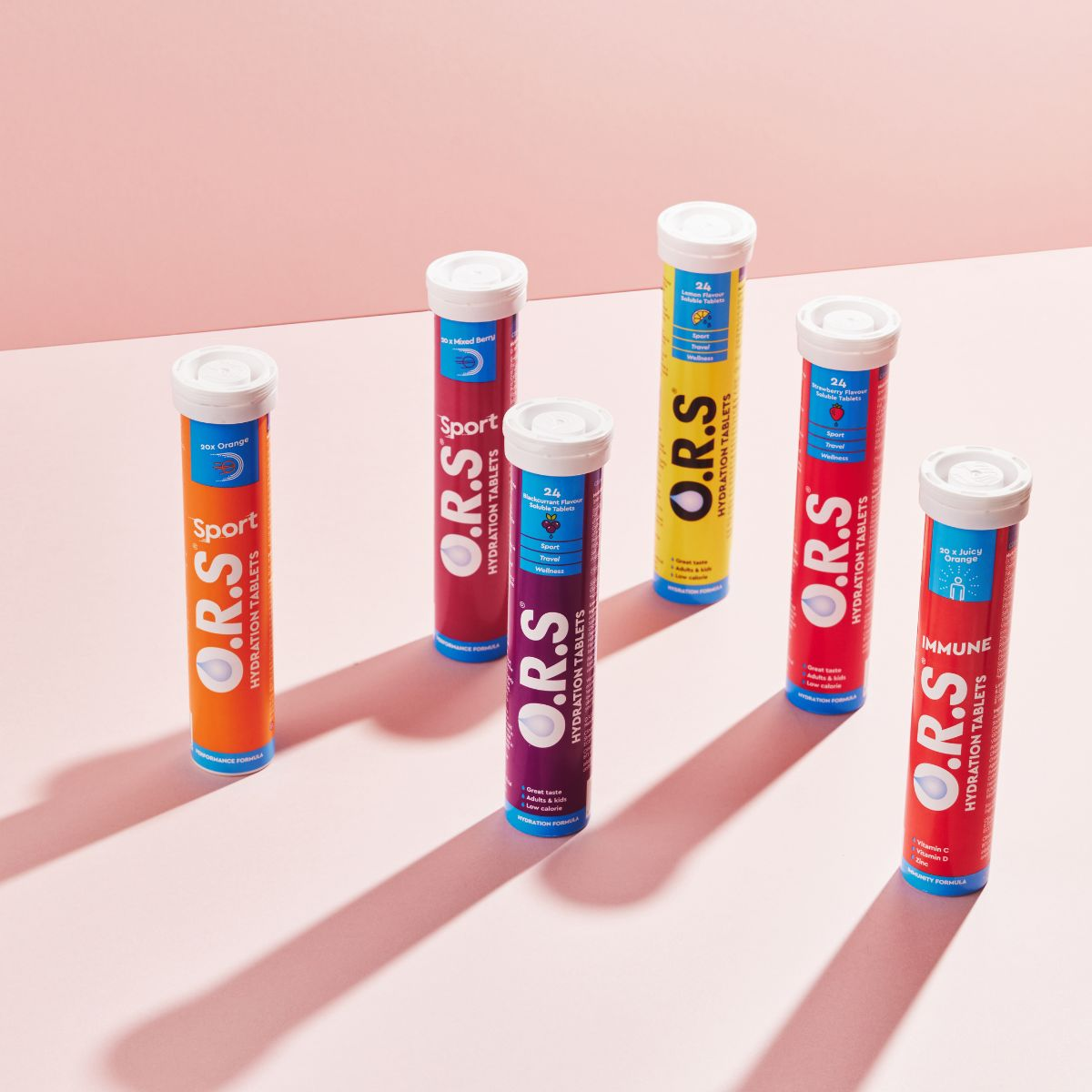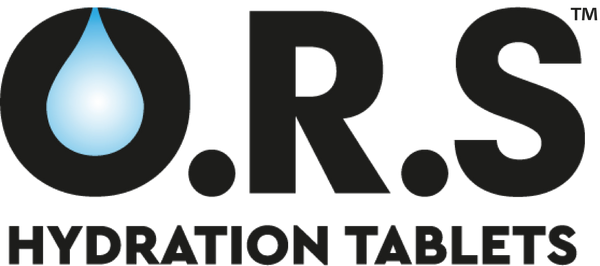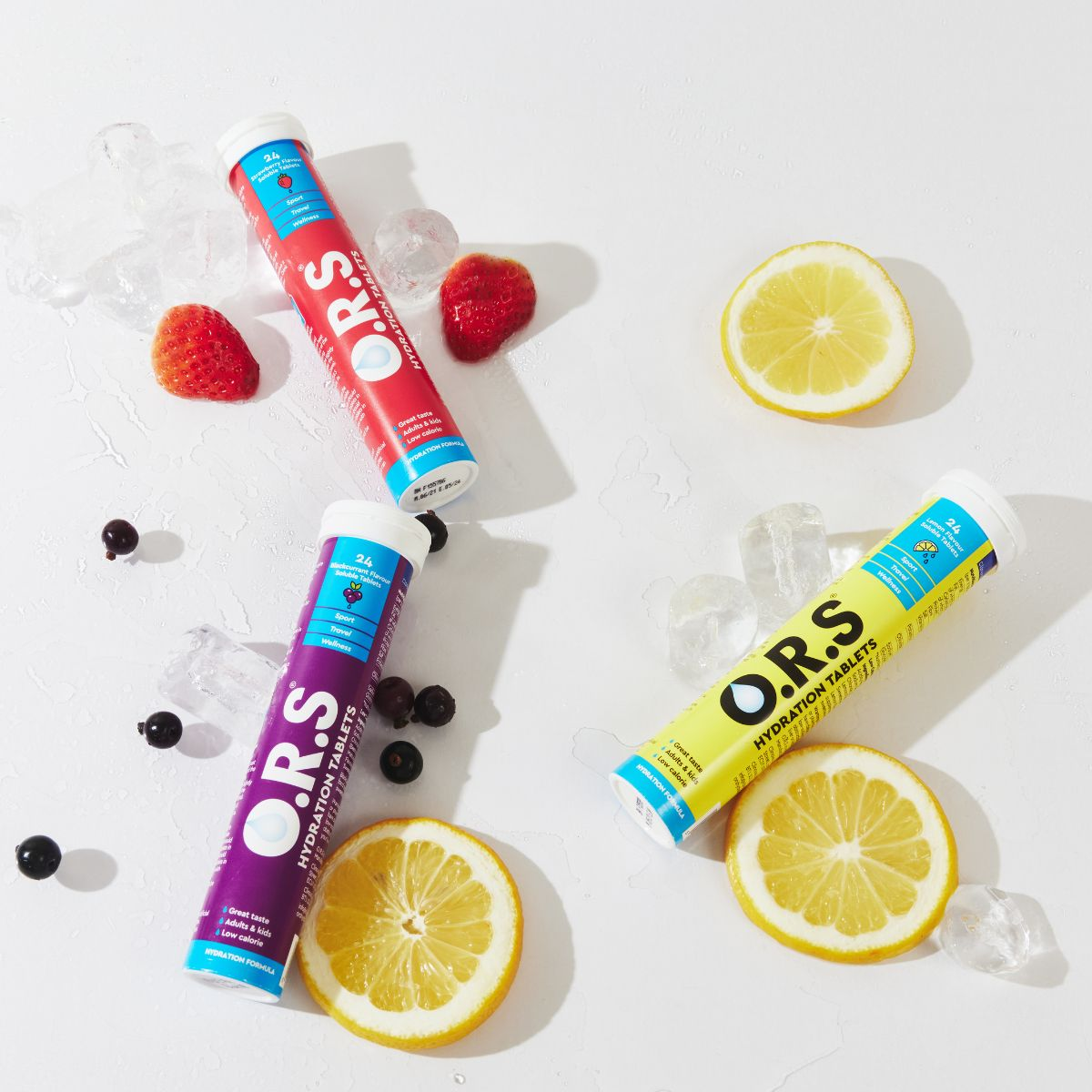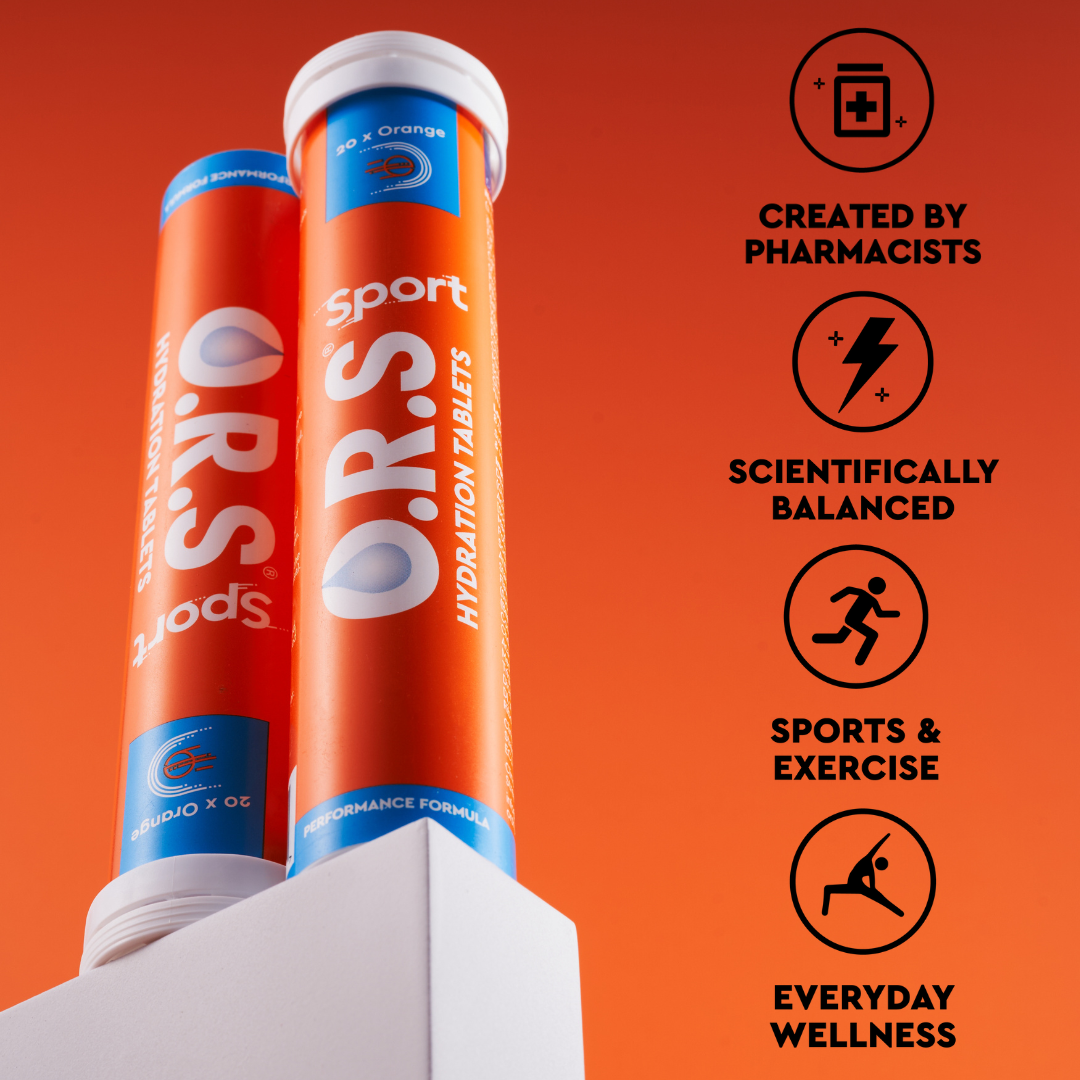
Staying Well Hydrated In Summer: The Role Of Electrolytes
Share
We’ve already had the second intense heatwave of the summer, and it’s only the beginning of July…phew! While most of us enjoy the long days, sunshine, and time outdoors, rising temperatures can mean that staying hydrated is more of a challenge.
We’re given plenty of reminders about drinking water in hot weather by everyone from train platform announcers to radio DJs, but this advice often overlooks the crucial role of electrolytes. Here’s a look at why drinking alone water isn’t enough, and how ORS rehydration tablets can support your fluid balance and energy levels this summer.
What are electrolytes?
Electrolytes are minerals such as sodium, potassium, magnesium, calcium, sodium and chloride, which help regulate essential functions in your body. Crucially, they help the body’s cells to absorb water more efficiently and maintain optimal levels of fluids. They also play a key role in energy production, nerve communication and muscle contraction.
When we sweat, which we all will during physical activity in the summer, we not only lose water but also electrolytes, because they are circulated throughout the body in fluids.
Why water alone isn’t always enough in summer
It can be surprisingly easy to become depleted in electrolytes, even if you think you are doing the right thing by sipping water all day: in fact, water alone can dilute mineral levels even further. If you feel inexplicably sluggish, light-headed, unfocused or headachy despite not being thirsty, it could be a sign of an electrolyte imbalance.
This is a more common problem in summer when we naturally sweat more: it’s the body’s way of trying to keep us cool. However we can also lose electrolytes through other bodily fluids, so if you’ve been unfortunate enough to have a summer cold or a bout of vomiting virus from a dodgy festival kebab, you could be at risk of depleted electrolytes.
The signs of low electrolyte levels
If you’ve quenched your thirst and dry mouth with water and cooled down in the shade but still notice any of these symptoms: fatigue; headache; nausea; muscle cramps or spasms; or a racing heartbeat; you might be low on electrolytes. Intense physical activity or disruption to your usual diet, such as a festival or travelling, can increase your risk.
How to replenish your electrolytes
The quickest and easiest way to top up your electrolytes is simply by popping an electrolyte tablet in your water bottle. They are lightweight and easy to carry in a backpack or even a pocket. They contain a science-backed formula of sodium, potassium, and magnesium, plus a small amount of glucose to aid faster rehydration.
If you are training intensely, there are sports ranges of electrolyte tablets that contain vitamin D and magnesium for faster recovery. All of ORS products are formulated to World Health Organisation guidelines and are lactose and gluten free and vegan-friendly. They are available in three refreshing natural flavours: strawberry, lemon and blackcurrant.
In normal circumstances, we get all the electrolytes we need from our diet. They are found in everyday foods such as fruit and vegetables, nuts, cereals and legumes. However, it can take several hours or even days for these minerals to be processed in the gut and circulated throughout the body.
If you’re travelling or at a festival all weekend, you’re probably also going to be eating more processed foods than usual and less fresh and wholesome stuff, which will generally mean your electrolyte levels are already on the back foot. Combined with extra sweating and dehydration, you will be in need of extra help.
The tablets can also help athletes to recover faster after intense training sessions or sporting matches, and support normal activities during heatwaves.
Smashing your summer hydration
So, there you have it: supporting hydration in summer is not just about drinking water regularly, but also managing your electrolyte levels. This will help you to stay energised, focused, and able to make the most of your summer activities, from festivals and holidays, to beach days or sporting events.







